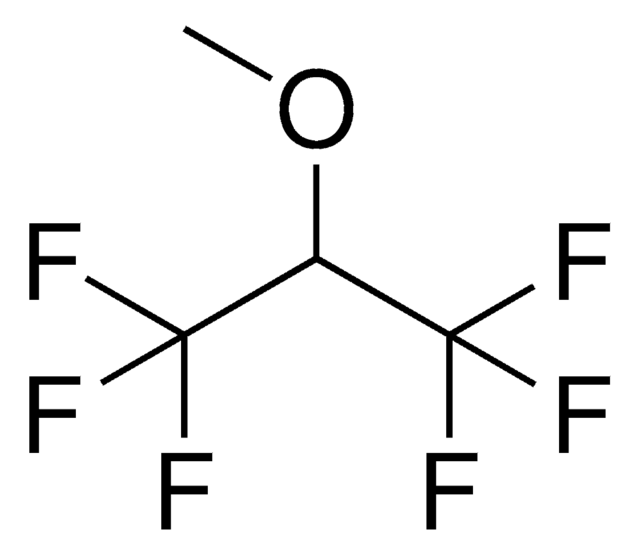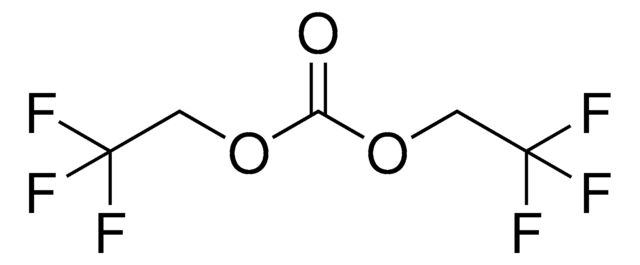934046
Ethyl 1,1,2,2-tetrafluoroethyl ether
≥99%, anhydrous, battery grade
Synonym(s):
1,1,2,2-Tetrafluoroethyl ethyl ether, 1-Ethoxy-1,1,2,2-tetrafluoroethane, ETFE, HFE 374
About This Item
Recommended Products
grade
battery grade
Quality Level
Assay
≥99%
form
liquid
greener alternative product characteristics
Design for Energy Efficiency
Learn more about the Principles of Green Chemistry.
sustainability
Greener Alternative Product
impurities
≤100 ppm HF
≤200 ppm H2O
bp
58 °C
mp
-86 °C (lit.)
density
1.21 g/mL
application(s)
battery manufacturing
greener alternative category
Related Categories
General description
Application
Signal Word
Danger
Hazard Statements
Precautionary Statements
Hazard Classifications
Flam. Liq. 2
Storage Class Code
3 - Flammable liquids
WGK
WGK 3
Flash Point(F)
5.0 °F
Flash Point(C)
-15 °C
Choose from one of the most recent versions:
Certificates of Analysis (COA)
Sorry, we don't have COAs for this product available online at this time.
If you need assistance, please contact Customer Support.
Already Own This Product?
Find documentation for the products that you have recently purchased in the Document Library.
Our team of scientists has experience in all areas of research including Life Science, Material Science, Chemical Synthesis, Chromatography, Analytical and many others.
Contact Technical Service









